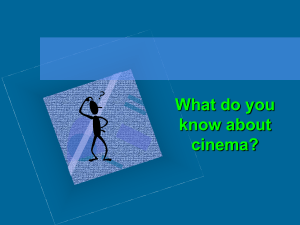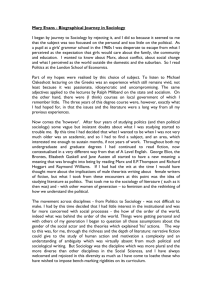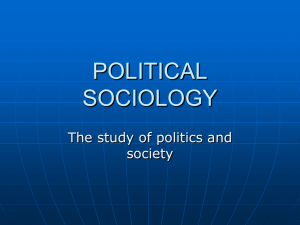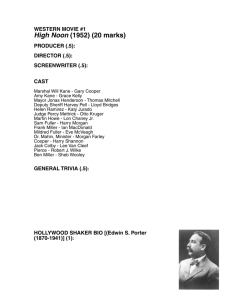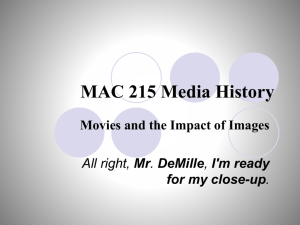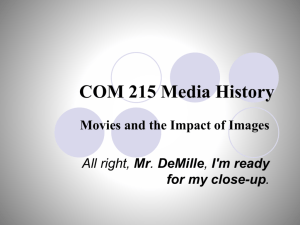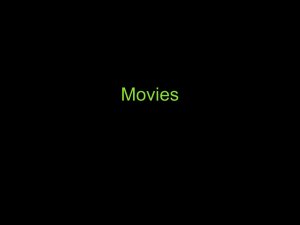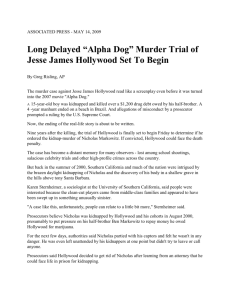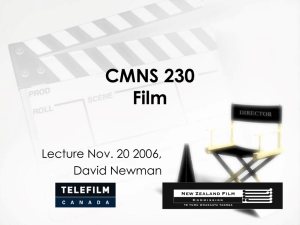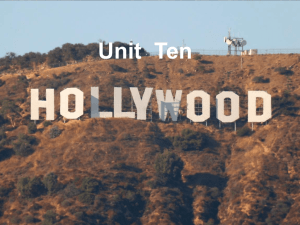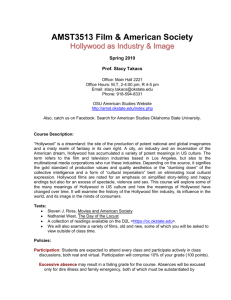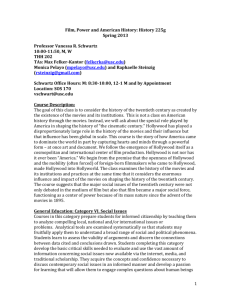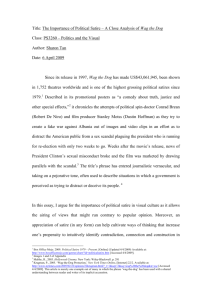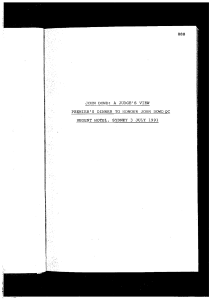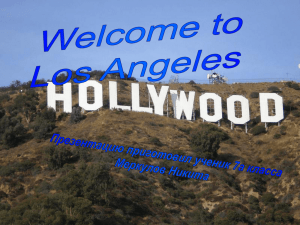Soci 3000: Sociology in Film. Maymester 2015. Instructor: James J
advertisement
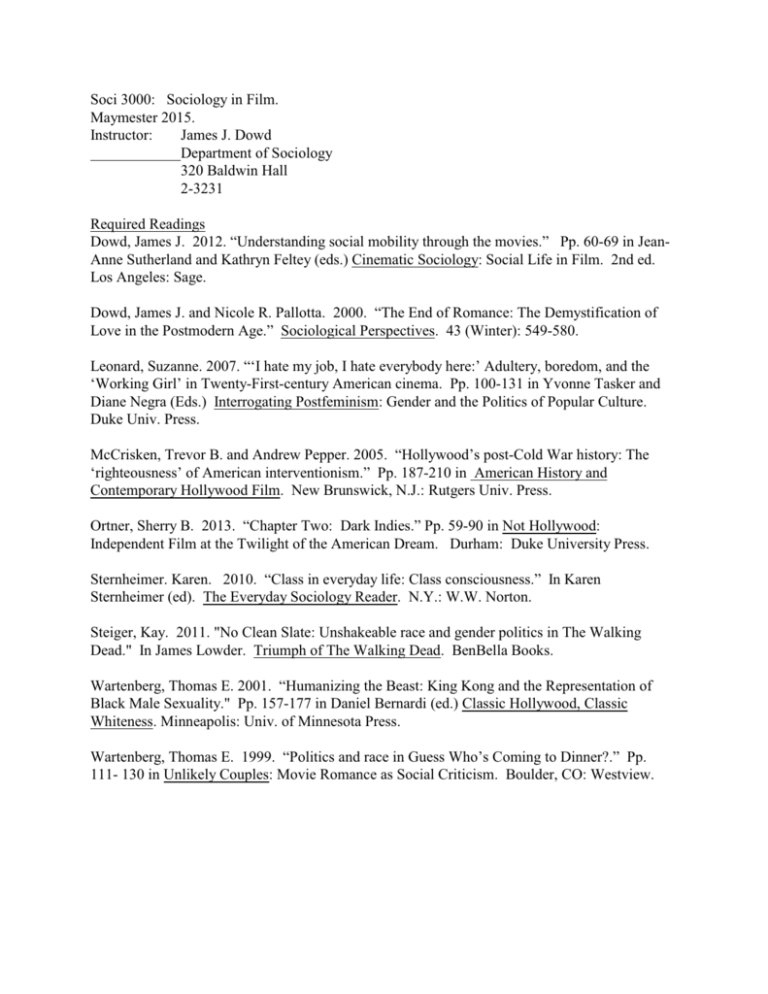
Soci 3000: Sociology in Film. Maymester 2015. Instructor: James J. Dowd Department of Sociology 320 Baldwin Hall 2-3231 Required Readings Dowd, James J. 2012. “Understanding social mobility through the movies.” Pp. 60-69 in JeanAnne Sutherland and Kathryn Feltey (eds.) Cinematic Sociology: Social Life in Film. 2nd ed. Los Angeles: Sage. Dowd, James J. and Nicole R. Pallotta. 2000. “The End of Romance: The Demystification of Love in the Postmodern Age.” Sociological Perspectives. 43 (Winter): 549-580. Leonard, Suzanne. 2007. “‘I hate my job, I hate everybody here:’ Adultery, boredom, and the ‘Working Girl’ in Twenty-First-century American cinema. Pp. 100-131 in Yvonne Tasker and Diane Negra (Eds.) Interrogating Postfeminism: Gender and the Politics of Popular Culture. Duke Univ. Press. McCrisken, Trevor B. and Andrew Pepper. 2005. “Hollywood’s post-Cold War history: The ‘righteousness’ of American interventionism.” Pp. 187-210 in American History and Contemporary Hollywood Film. New Brunswick, N.J.: Rutgers Univ. Press. Ortner, Sherry B. 2013. “Chapter Two: Dark Indies.” Pp. 59-90 in Not Hollywood: Independent Film at the Twilight of the American Dream. Durham: Duke University Press. Sternheimer. Karen. 2010. “Class in everyday life: Class consciousness.” In Karen Sternheimer (ed). The Everyday Sociology Reader. N.Y.: W.W. Norton. Steiger, Kay. 2011. "No Clean Slate: Unshakeable race and gender politics in The Walking Dead." In James Lowder. Triumph of The Walking Dead. BenBella Books. Wartenberg, Thomas E. 2001. “Humanizing the Beast: King Kong and the Representation of Black Male Sexuality." Pp. 157-177 in Daniel Bernardi (ed.) Classic Hollywood, Classic Whiteness. Minneapolis: Univ. of Minnesota Press. Wartenberg, Thomas E. 1999. “Politics and race in Guess Who’s Coming to Dinner?.” Pp. 111- 130 in Unlikely Couples: Movie Romance as Social Criticism. Boulder, CO: Westview.


